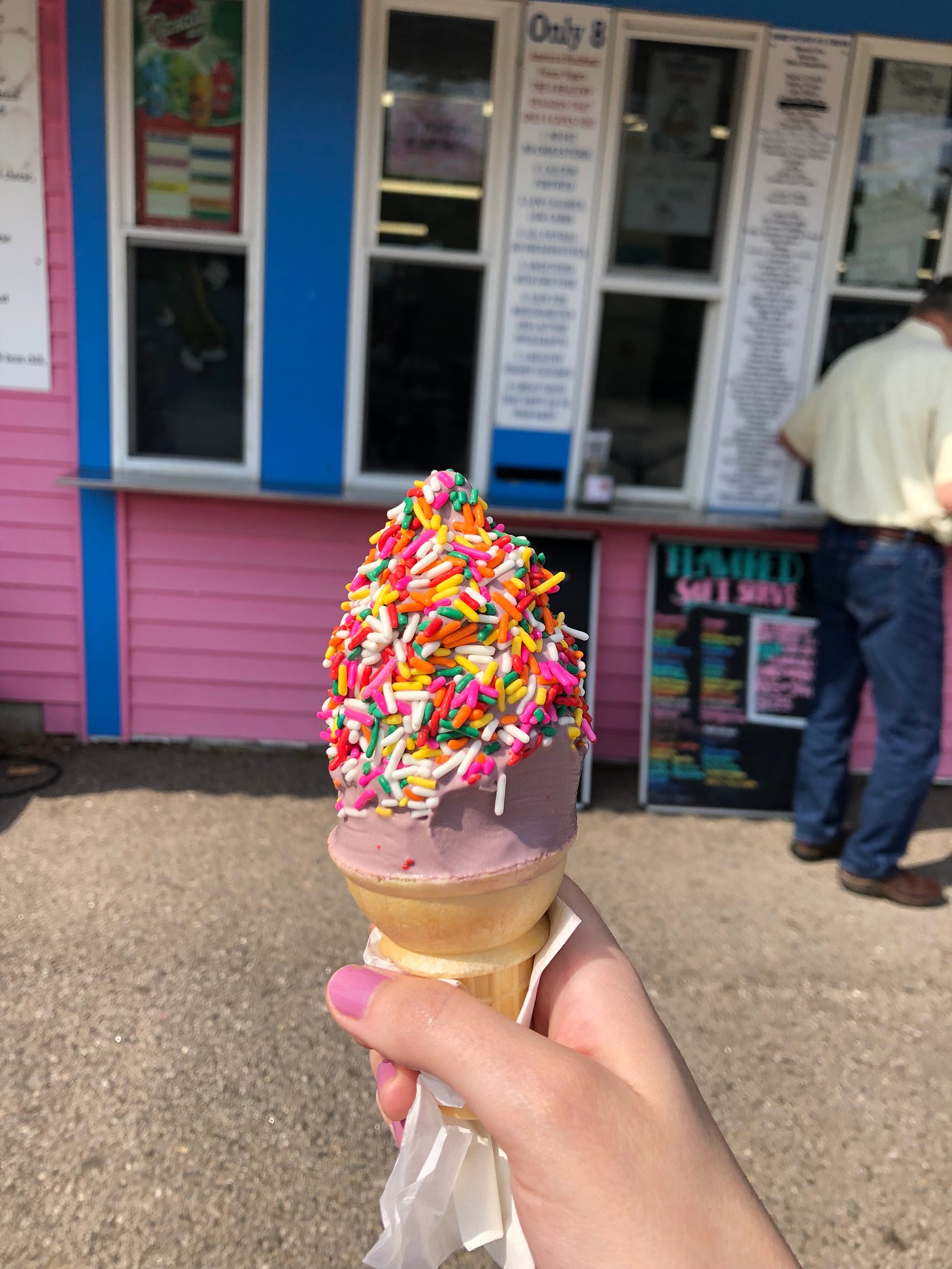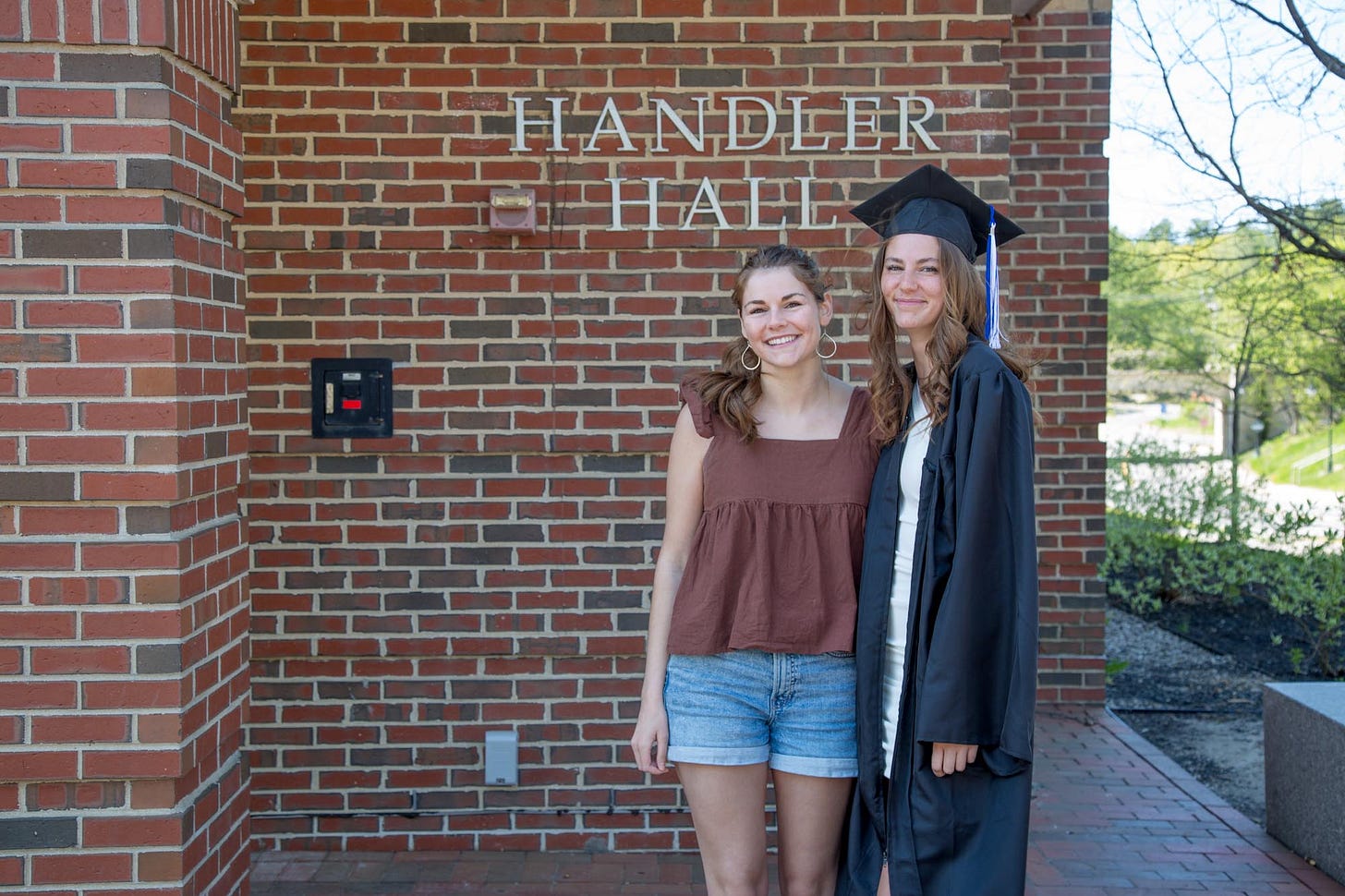What does "flowing with milk and honey" actually mean?
Weaker appetites, Telling a Better Story, and a new connection project.
I’ve been listening through the book of Numbers while I brush my teeth in the morning and I haven’t counted the exact number of times the Israelites want to go back to Egypt, but it’s high.
“Now the rabble that was among them had a strong craving. And the people of Israel also wept again and said, ‘Oh that we had meat to eat! We remember the fish we ate in Egypt that cost nothing, the cucumbers, the melons, the leeks, the onions, and the garlic. But now our strength is dried up, and there is nothing at all but this manna to look at’” (Numbers 11:4-6 ESV).
One of the primary reasons they wanted to return was Egypt’s food. Obviously the desert wasn’t bursting with produce, but God provided miracle manna and quail. It literally fell into the camp out of the sky and all they had to do was gather it.
Since many of us in our culture experience excess of food, we have a hard time imagining what it was like to fear death due to lack of food. God promised to bring Israel into the land and provided an abundance of food, so on one level, this was a trust-in-God problem for them (though we should be careful to judge them too harshly or point fingers—we have our own besetting trust issues). But on another level, it was a satisfaction problem. Sometimes they were afraid to starve, but sometimes, like in the passage above, they were just sick of manna.
Egypt had good food, but the land they were heading toward was flowing with milk and honey—a bold description. Obviously this land did not literally have rivers of milk and honey. In an Old Testament survey class I took with Mark D. Futato, he explained its meaning like this:
In the ancient Near East, milk symbolized blessing and luxury
Honey symbolized prosperity and abundance.
But the keyword in this phrase is not milk or honey—it is flowing.
Futato says that flowing “suggests a rich fullness that surpasses all need.”
God is the God of abundance. The land he was bringing his people into didn’t merely have food to eat. It was a prosperous and abundant land. The Israelites would have blessing and luxury. This was the case, in one sense, because God made the soil in the land rich and caused good produce to grow. But in the realest sense, the land was abundant because God would dwell there. (In fact, the descriptions of the land and the Temple they would build there are reminiscent of the garden of Eden, where humanity first dwelled with God.) God’s favor would be on them there because God, in his sovereignty, saw it fit to bless all nations through this one nation.
But even with this tantalizing promise, they wanted to choose slavery and earthly pleasures instead of freedom and the presence of God. They wanted to go back to slavery because of “the fish… the cucumbers, the melons, the leeks, the onions, and the garlic.” Freed from being slaves to the Egyptians, they became slaves to their stomachs.
We are exactly the same.
For us, it’s probably not the cucumbers or garlic. Instead, we look longingly over our shoulders to things God continually brings us out of: the lack of self-control that masquerades as “freedom,” the self-centeredness of building our own “kingdoms,” the pitiful pleasures that take us away from time with God. We choose slavery to our insecurities and impulses. And those things are terrible masters.
We exchange the greater pleasure of God’s presence for the lesser pleasure of fish in Egypt. We pick our chains back up, divorced from devotion to God, not because our appetites are too strong for God to satisfy, but because they are too weak.
C. S. Lewis writes in The Weight of Glory, “It would seem that Our Lord finds our desires not too strong, but too weak. We are half-hearted creatures, fooling about with drink and sex and ambition when infinite joy is offered us, like an ignorant child who wants to go on making mud pies in a slum because he cannot imagine what is meant by the offer of a holiday at the sea. We are far too easily pleased.”
Yes, there are melons and leeks behind. But there is better food ahead—and more importantly: freedom, abundance, and God’s presence.
So let us leave things behind—the fish in Egypt, the dopamine and mindlessness of scrolling, the allure of “productivity,” the extra hour of sleep, or anything that drags us away from our time with God—to move toward the honey in the promised land. And more importantly, to move toward a future of bliss greater than we can fathom: dwelling with God, unhindered by sin. Forever.
“For now we see in a mirror dimly, but then face to face. Now I know in part; then I shall know fully, even as I have been fully known” (1 Corinthians 13:12 ESV).
Until then, my weak appetite—my appetite for sin and “everything that hinders”1—can be strengthened by dwelling with God. The more I am with him, the more I want to be with him.
Better is one day in your courts
than a thousand elsewhere;
I would rather be a doorkeeper in the house of my God
than dwell in the tents of the wicked.
Psalm 84:10 NIVThings I’m Enjoying (Gifts from God & Resources for You!)
1: My current read
The word “apologetics” creates different reactions in all of us. What do you think of when you hear this? Angry debaters? The shame of “not knowing enough?” This book softened and sharpened me, and I’m grateful for it. Chatraw “reads the room” of our culture and proposes a good way forward.
“The need of the hour is a mature apologetics that is historically informed and theologically rooted in the gospel itself. This will require not only knowing how to give reasons for our faith, but also knowing how to stoke imaginations, model cruciform lives, and publicly confess both our own personal shortcomings and the failures of the church throughout history. (We do, after all, have some planks to remove from our own eyes).” –Joshua D. Chatraw, Telling a Better Story: How to Talk About God in a Skeptical Age pg. 19
2: Allie!!!
Getting teary and nostalgic because my sister graduated from college. Four years? More like four minutes. More like four lifetimes.
3: Our brains are mean
With summer almost upon us, you might be feeling some pressure to get your body “ready” for the beach. Caroline Saunders (the author of this study) says it’s not our bodies we need to get ready (they already are)—it’s our brains. I went through this study last year, and it is excellent; it drills down to the issues under our issues, elevates our gaze, and roots us in Scripture. It’s a free download!
Creative Connection
I started my “Summer of Creative Connection” over on Instagram. Here is the first prompt!
Go on a Scripture walk
Find a way to listen to the Bible (playing it through a Bible app, etc.)
Grab your earbuds and sneakers
Pick a portion of the Bible you’ve never read (or haven’t read in a long time)
Ask the Holy Spirit to help you understand his Word
Walk outside while you listen (even just for 5 minutes!)
Read the heart behind this project here, and watch the first video here.
Hebrews 12:1 NIV









It's just such a lovely article! Thank you for encouraging my heart with such beautiful truth 😃💕
Love the CS Lewis quote! There is truly so much to discover about God in this present moment, so being reminded of that gives fresh motivation to seek Him today!
And congrats to your sister :) Had seen that post on insta and love the friendship you have!! Such a gift!!